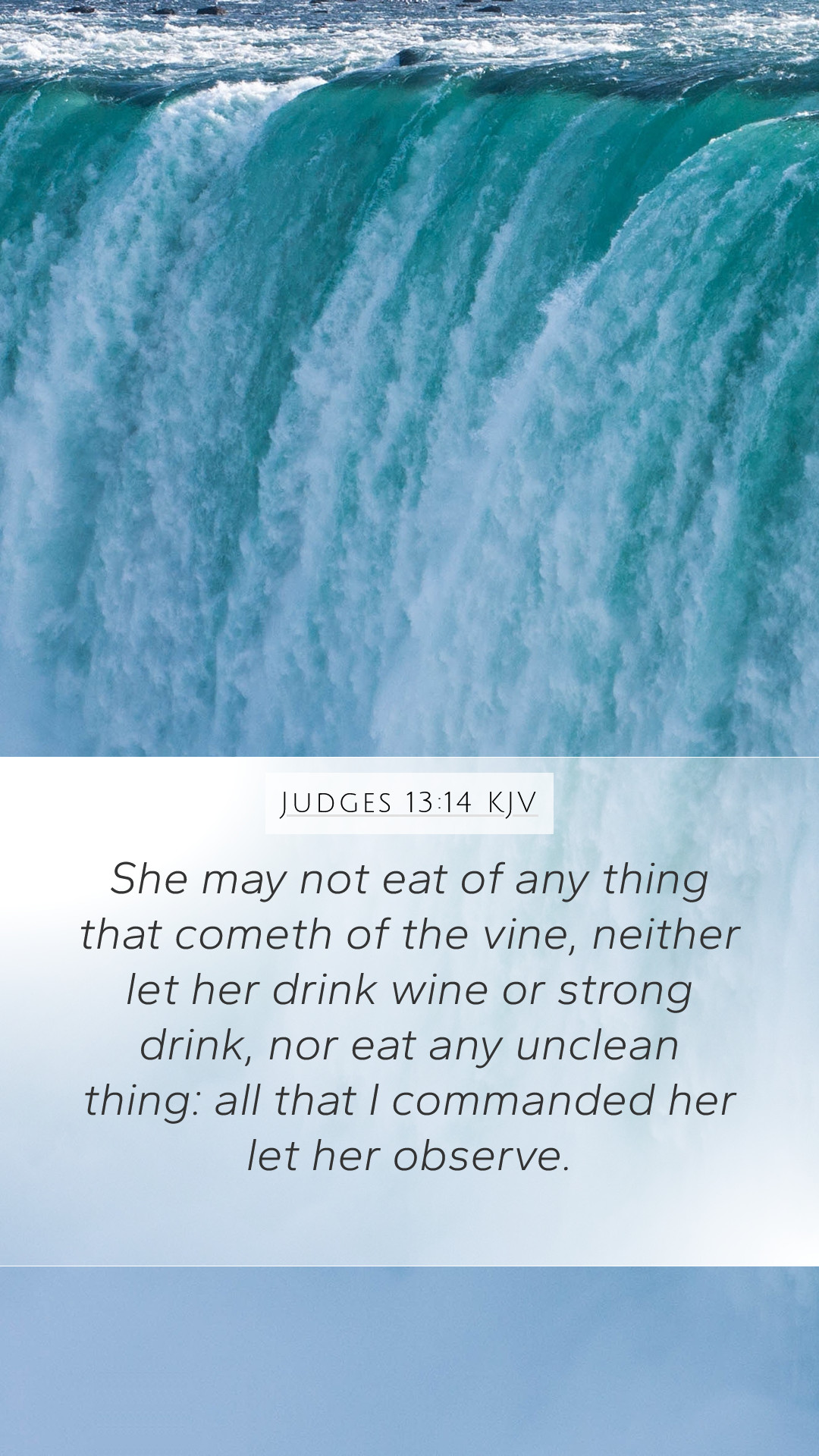Bible Verse Meaning: Judges 13:14
Judges 13:14 states: "She may not eat of any thing that cometh of the vine, neither let her drink wine or strong drink, nor eat any unclean thing: all that I commanded her let her observe." This verse is a part of the narrative of the birth of Samson, where the angel of the Lord gives specific instructions to Manoah's wife regarding her conduct during her pregnancy.
This command highlights several important themes and theological points:
-
The Importance of Obedience:
As noted in Matthew Henry’s Commentary, the divine instructions reflect the seriousness of God’s plans for Samson. Obedience to these commands was crucial for the fulfillment of Samson's purpose as a Nazirite, whose life was dedicated to God.
-
Separation from the World:
Albert Barnes emphasizes that the restrictions on Manoah’s wife were to ensure a separation from worldly influences. This mirrors the biblical principle of being set apart for God’s service and is often referenced in the context of a Nazirite vow, which includes abstaining from wine and anything unclean (Numbers 6:1-4).
-
Symbolism of the Vine:
Adam Clarke provides insight into the symbolic nature of the vine and strong drink in the context of spiritual purity. The vine often represents indulgence and excess, which can hinder one’s relationship with God.
-
The Role of Women in God’s Plan:
This verse highlights the significant role that Manoah's wife played in raising Samson, as conveyed by Matthew Henry. It shows that women too are integral in God's plans and are often placed in positions to nurture leaders and deliverers.
-
Divine Revelation and Guidance:
The visitation by the angel signifies God’s active involvement in guiding His chosen vessels. Barnes notes that God’s direct communication demonstrates His desire for clarity regarding His expectations.
-
Consecration and Holiness:
The instructions given emphasize the need for holiness and dedication in preparation for serving God. Clarke mentions that such commands are not merely restrictions but are vital for spiritual life and effectiveness in God’s mission.
Application of Judges 13:14
The lessons drawn from Judges 13:14 can be applied in various ways:
-
Understanding God’s Standards:
This verse challenges individuals to consider their own lives in relation to God’s standards. Just as Manoah’s wife was called to observe specific commands, believers today are called to examine their conduct and ensure it aligns with God’s will.
-
Living a life set apart:
The concept of being ‘set apart’ is relevant for modern Christians, encouraging them to resist societal norms that conflict with biblical teachings. This involves making intentional choices that uphold one’s faith and witness.
-
Emphasizing family roles:
The influence of a mother is foundational in nurturing faith within the family structure. This verse highlights the importance of parental guidance in cultivating a life devoted to God.
Cross References
- Numbers 6:1-4 – Discusses the Nazirite vow and its requirements.
- 1 Samuel 1:11 – Hannah's prayer and vow regarding her son Samuel.
- 2 Corinthians 6:17 – Call to come out from among them and be separate.
Conclusion
Judges 13:14 serves as a powerful reminder of the expectations placed upon those chosen by God, emphasizing the importance of obedience, separation from worldly influences, and the significant role of family in God’s plans.


